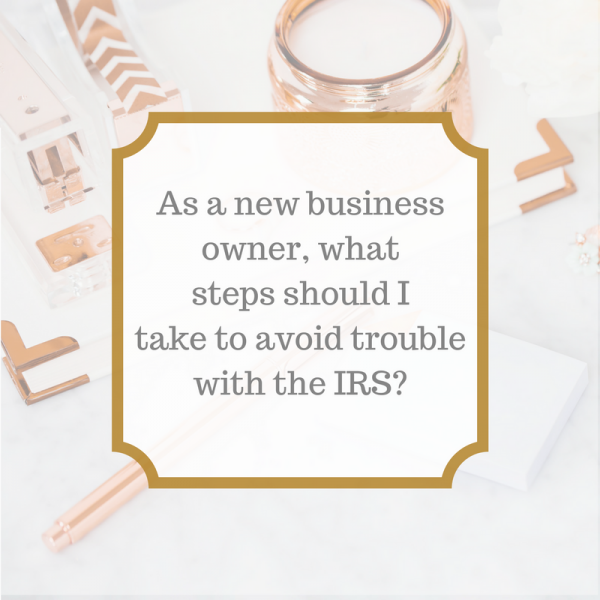
One very important step that new business owners must understand and take is the importance of keeping accurate business records. Many small business owners end up in trouble with the IRS simply because of poorly kept business records. For example, businesses get in trouble with the IRS if they get audited and they cannot prove their business expenses through source documents.
It does not matter if the expense is 100% legit if you do not have the proper document to support it to the IRS then that business expense does not exist to them.
This is where proper bookkeeping and recordkeeping play a major role in your business. I know this is not the fun or “sexy” side of business, but it is extremely important and something that everyone in business must endure — although no one talks about it.
Keeping your business finances “attractive” means that they are healthy and in order. Just like you should exercise and eat healthy to look and feel your best — keeping orderly business finances and records will maintain your business running smoothly and successfully.
Poor record-keeping often leads to failure to file accurate tax returns which usually leads to red flags with the IRS. And if you have poorly kept records when you are audited you can get in big trouble which can lead to even losing your business. I have heard many horror stories about businesses getting in trouble with the IRS resulting in huge tax bills — cutting their business out of existence! — which is very sad.
There are a number of programs you can use to keep a track of your own business records or you can hire a professional record-keeper to do the work for you. You should always keep all documents related to business expenses in a safe place.
For example, you can keep a cabinet with all your business expenses organized by categories in individual folders, such as: travel expenses, professional fees, utility bills, automobile expenses etc.
Note: The IRS tends to focus on expenses related to your car, travel costs, and entertainment.
Note: The burden of providing documentation that verifies your deductions falls on you, not the IRS.
**Tip** If you are unsure about what you should keep, you should get in touch with a tax professional.
Have a question of your own? Submit them to [email protected] and write FAQ on the subject line! 🙂

Author: Rosy Conde, CPA
Rosy Conde is a financial coach and business strategist with a passion for learning and helping others by offering business and financial advise and tips. She serves as a guidance in helping passionate entrepreneurs, who have a desire to launch and run their own successful business in today's modern world.

